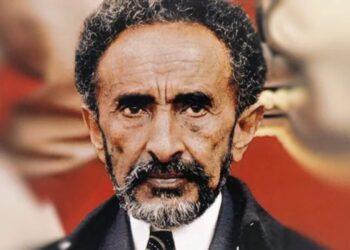Leadership has been defined in many ways based on different perspectives which examine variables such as traits of effective leaders, leadership styles, the concept and use of power, personal and environmental contingencies, and leadership models and theories. Yet in the many articles that have been written and about 350 definitions given by a variety of experts (Lunenburg & Ornstein, 1996), the findings have not been conclusive as to what entails effective leadership.
One great definition is: “Leadership is the art of leading others to deliberately create a result that wouldn’t have happened otherwise.” Italian political strategist Niccolo Machiavelli’s The Prince has had incredible influence since its publication 5 years after his death in 1532. It was written in era where deliberations on new concepts and intellect was a common theme during the European Reformation.
Machiavelli’s point of view on leadership is controversial and that his stance is not guided by the virtuous principles but instead it is informed by a presentation of effective leadership. It is therefore very important for one to understand the premises under which his treatise is formed in order to appreciate the lessons learnt thereof. Having this context clear in mind, this blog goes forward in bringing out the great lessons learnt on leadership that are surrounded by political ideologies as depicted in The Prince.
There are various lessons that can be learnt from the treatise but this blog post will focus on those that stand out and that elucidate the key aspects of leadership. One of the key lessons that we learn from the Prince is that a leader should be keen on exercising the mind through extensive reading. This helps the leader to examine literature on past leaders, how they were able to succeed in their areas of administration and on which strategies they used to achieve what they got.
“… to exercise the intellect the prince should read histories, and study there the actions of illustrious men, to see how they have borne themselves in war, to examine the causes of their victories and defeat, so as to avoid the latter and imitate the former.” Machiavelli’s motto, “The end justifies the means” should be the aim of any effective leader. Any leader worth his salt should work towards achieving the goals set within the area of his jurisdiction.
Great positions come with a lot of challenges and so to be productive one needs to keep his or her eyes wide open in order to grab and utilize the opportunities that come by (Burns, J. M., 1978). It also calls for sacrifices and taking drastic steps when it necessitates so as ultimately to achieve the desired objectives. Leadership that is good is founded on trust hence it is incumbent upon any worthwhile leader to be careful on the persons he or she chooses to trust.
Leaders are involved in many activities whose outcome directly impacts the surroundings in which they operate. Therefore, they should be wise especially when it comes to matters that are critical in an organization as not to be reckless with the information that can be used to harm the leader or the organization at large. Hence a leader should, “… he who is the cause of another becoming powerful is ruined; because that predominance has been brought about by astuteness or else by force, and both are distrusted by him who has been raised to power.”
Machiavelli in The Prince says, “… if one is on the spot, disorders are seen as they spring up, and one can quickly remedy them; but if one is not at hand, they are heard of only when they are great, and then one can no longer remedy them.” A good leader is who his or her presence is felt in the area he or she commands. This is important as it will play a big role in decision making when critical issues rise that need attention at the time of occurrence.
This goes a long way in averting any problems that may arise in future and that can be almost impossible to rectify. Machiavelli’s phrase, “… above all things he must keep his hands off the property of others, because men more quickly forget the death of their father than the loss of their patrimony…” is another stronghold for effective leadership. Leaders should be able to get satisfied with the much they get from the work they are involved in.
They should not be greedy so as to avoid misuse or embezzlement of resources that are under their care. An upright leader should not be involved in shady deals that may in one way or another bring him or her to disrepute. A good leader should be thus accountable and transparent in all the dealings with which he or she is associated with. Finally, a leader should be feared than loved as Machiavelli puts it, “It is better to be feared than loved”.
A leader should not compromise matters of policy when it comes carrying out the intended duties because (s)he fears that his reputation will be dented. A mix of personal relationships and leadership roles should not be entertained by the leader. The leader thus should take assertive measures to ensure that policies are followed and employees punished where necessary. This should not be misinterpreted as to be hatred. (Hersey, P., & Blanchard, K. H., 1982).
In conclusion, Machiavelli discusses many behaviours both good and bad as regards leadership practices, but it should be the aim for every individual to becoming a good leader. Therefore, as an individual you should work on your leadership qualities by shading what is bad and picking on is the best for you and that is agreeable to the society at large.



































































































































































































Great work.. so educative.
Great article brother at least I have got some history lesson here
Many people are living in Kenya and they are suffering some issues in
Kenya. High court will take decision to solve all matters in Kenya which
people are bearing.
A good leader is who his or her presence is felt in the area he or she
commands. This is important as it will play a big role in decision
making when critical issues rise that need attention at the time of
occurrence.